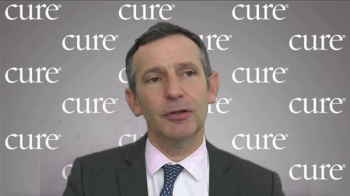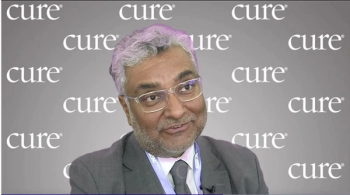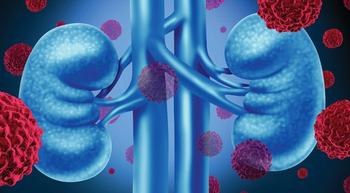
Among patients with solid tumors, baseline emotional functioning was moderate, with lower functioning for female and younger patients.

Among patients with solid tumors, baseline emotional functioning was moderate, with lower functioning for female and younger patients.

In patients with extensive-stage small cell lung cancer Imdelltra plus chemoimmunotherapy was associated with positive outcomes.

In patients with ER-positive, HER2-negative advanced breast cancer, giredestrant and Afinitor reduced risk of disease progression or death.

Among patients with EGFR-mutated non-small cell lung cancer Tagrisso plus chemotherapy was associated with an improvement in survival.

For patients with HRRm prostate cancer receiving Akeega with prednisone, quality of life remained at baseline.

Ponsegromab improved body weight, suppressed GDF-15 and was well-tolerated over 64 weeks in cancer-associated cachexia, including patients switching from placebo.

Adding Kisqali to a nonsteroidal aromatase inhibitor continued to reduce recurrence risk and improve survival at five years in early breast cancer.

Among patients with gastric/gastroesophageal junction (G/GEJ) adenocarcinoma that is resectable, Imfinzi with FLOT improved survival.

Adding Imfinzi to Bacillus Calmette-Guérin therapy improved disease-free survival for patients with high-risk, non-muscle invasive bladder cancer.

Among patients with muscle-invasive bladder cancer, perioperative Imfinzi to chemotherapy doesn’t have a detrimental effect on patient-reported outcomes.

Lenvima and Keytruda with chemo did not help patients with metastatic esophageal squamous cell carcinoma live longer than Keytruda and chemotherapy alone.

Sevabertinib showed high response rates and durable disease control in patients with HER2-mutant NSCLC, with diarrhea as the main manageable side effect.

Home-based supervised physical activity has no major impact on fatigue and quality of life for patients with metastatic cancer receiving oral targeted therapy.

Gleevec remains effective in advanced gastrointestinal stromal tumors, with complete response or full tumor removal doubling median survival.

The addition of Tecentriq to BCG therapy did not significantly improve outcomes for patients with non–muscle-invasive bladder versus BCG alone.

An expert discussed how patients with breast cancer, particularly those with a BRCA mutation, should consider future fertility and breastfeeding when making treatment decisions.

An expert discussed how liquid and tissue biopsies can help monitor treatment and detect potential resistance in patients with non-small cell lung cancer.

Through regular follow-ups and symptom assessments, breast cancer survivors have the access to physical and emotional support they may need.

An expert explained the advantages and disadvantages of radiation as a treatment for patients with renal cell carcinoma, a type of kidney cancer.

An expert discussed how the understanding of resistance mechanisms can help care teams develop a global treatment strategy for EGFR-mutated non-small cell lung cancer.

An expert discussed options young patients with breast cancer may have to preserve their fertility before starting cancer treatment.

An expert explained how radiation may be a treatment option for patients with renal cell carcinoma to manage symptoms and control the disease.

The drug combined with chemotherapy demonstrated a 60% increase in progression-free survival, suggesting signs of an FDA approval.

For patients with metastatic colorectal cancer, adding a higher dose proves just as effective as the standard dose of vitamin D3, despite one exception.

Distance relapse-free survival was maintained in patients with pMMR locally advanced rectal cancer through non-operative management of the disease.

Receiving perioperative Opdivo for non-small cell lung cancer showed event-free survival benefits compared with placebo.

Among patients with HR+/HER2+ breast cancer, Herceptin and Perjeta plus endocrine therapy proved to be beneficial without chemotherapy.

Keytruda continued to improve survival versus Yervoy in unresectable stage 3 or 4 melanoma in long-term follow-up data.

Fotivda monotherapy may show better outcomes in second-line therapy than the combination of Opdivo and Fotivda in metastatic kidney cancer.

Benmelstobart plus anlotinib significantly improved survival versus Sutent in the first-line treatment of advanced renal cell carcinoma.